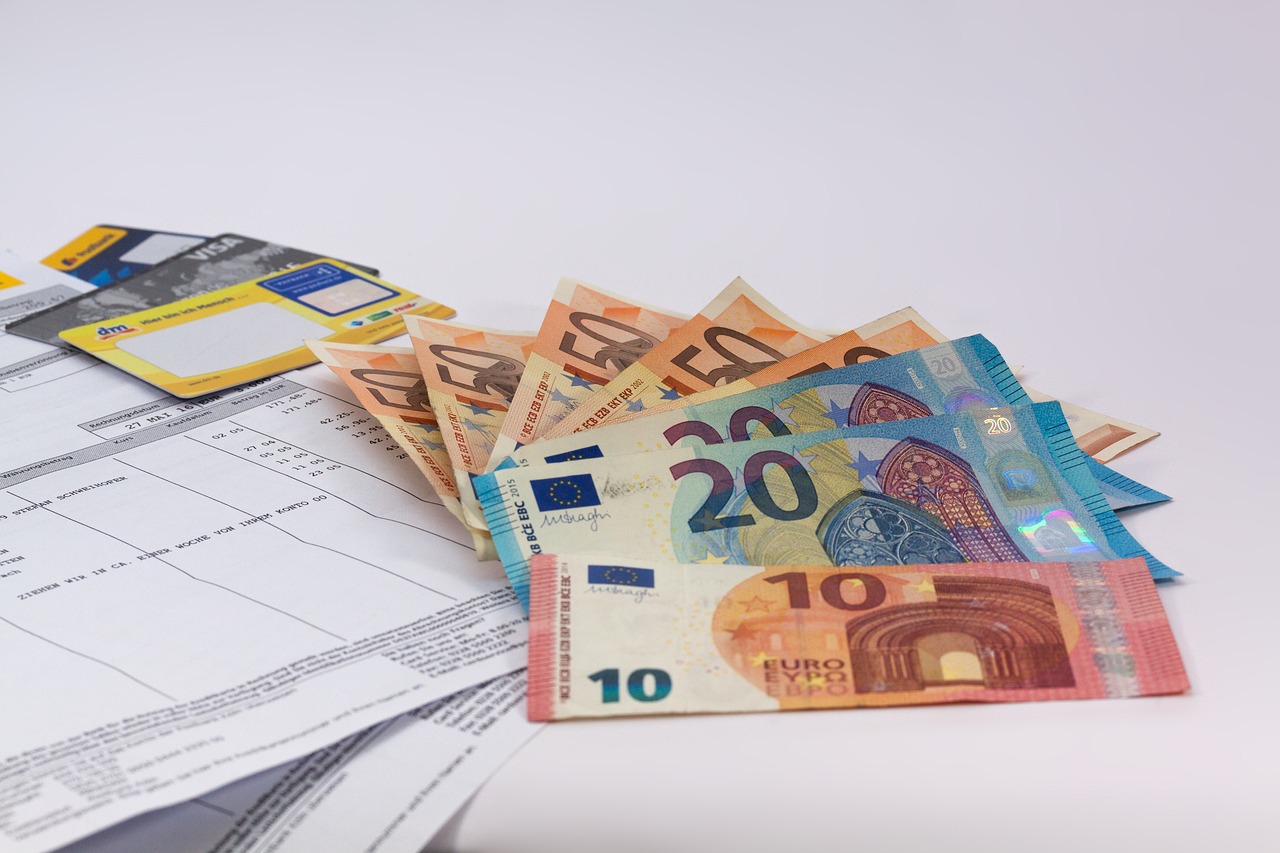Unlocking the Secrets of Bank Transfers to Thailand: Need-to-Know Tips for Receiving, Avoiding Fees, and More!
GPT_Global - 2024-08-29 23:30:14.0 429
Do I need to have a Thai bank account to receive a transfer from abroad?
If you are living or working abroad and need to transfer money back to Thailand, you may be wondering if it is necessary to have a Thai bank account to receive the funds. The answer is no, but there are some requirements and considerations to keep in mind.
First, it is important to note that many international money transfer services offer direct deposit into Thai bank accounts. This may be the most convenient option if you already have a bank account set up in Thailand. However, if you do not have a Thai bank account, there are other options available to receive the transfer.
One alternative is to use a money transfer app or service that allows for cash pickup at designated locations. These locations may include banks or other financial institutions in Thailand, making it easy for you to access your funds without needing a bank account.
Another option is to opt for a physical check or bank draft. However, this may be more time-consuming and expensive as checks may need to be mailed and the recipient will need to physically deposit the check into their bank account.
If you are planning on receiving frequent transfers from abroad, it may be worth considering opening a Thai bank account. This can make the process smoother and more cost-effective in the long run. Additionally, having a local bank account may also be necessary for certain transactions, such as paying bills or setting up automatic payments.
Overall, while it is not mandatory to have a Thai bank account to receive a transfer from abroad, it may provide more convenience and cost-saving benefits. It is recommended to explore your options and choose the best method for your specific needs and situation.

What happens if my bank transfer to Thailand gets rejected?
If you are sending money to Thailand through a bank transfer, it is important to understand what could happen if your transfer gets rejected. There are a few reasons why this could occur, and being aware of potential challenges can help you avoid delays and ensure a smooth remittance process.
One common reason for a bank transfer to be rejected is incorrect or incomplete information. When making a bank transfer, double check that you have entered the recipient's name, account number, and bank details correctly. Any errors could lead to a rejection, causing a delay in your transaction.
Another possible cause for a rejected transfer is insufficient funds in your account. Before initiating a transfer, make sure you have enough money in your account to cover the amount you intend to send. If your account does not have sufficient funds, the transfer will not be processed.
Sometimes, a bank may also reject a transfer due to security concerns. If they suspect any fraudulent activity, they may freeze the transaction and ask for additional information or proof of identity before proceeding. This is a common measure to protect both the sender and the recipient from potential scams.
In case your bank transfer is rejected, don't panic. Often, the issue can be resolved by contacting your bank and providing the necessary information or rectifying any errors. However, if your transfer is rejected multiple times, it may be best to try an alternative remittance method such as using a money transfer service.
In conclusion, it is crucial to pay attention to the details and ensure you have enough funds when making a bank transfer to Thailand. By avoiding common pitfalls, you can increase the likelihood of a successful transaction and timely delivery of your funds to your loved ones.
Is there a maximum amount of money that can be transferred to Thailand per transaction?
When it comes to transferring money to Thailand, many people may wonder if there is a maximum amount that can be sent per transaction. The answer to this question is yes, there is usually a limit on how much money can be transferred in one go. The exact limit may vary depending on the remittance service and the country you are transferring from. Some services may have a maximum amount of $10,000 per transaction, while others may allow up to $50,000 or even higher. This limit is often put in place as a security measure to prevent illegal activities such as money laundering and fraud. It also helps ensure that the transfer process goes smoothly without any delays or issues. If you need to transfer more than the maximum amount allowed per transaction, you can do so by splitting the amount into multiple transactions. However, this may incur additional fees. It is important to check with your chosen remittance service beforehand to understand their specific limitations and fees. In addition to monetary limits, there may also be restrictions on the types of currencies that can be transferred to Thailand. For example, some services may only allow transfers in US dollars, while others may accept a variety of currencies including euro, pound, or yen. Overall, it is important to research and compare different remittance services to find the best option that fits your needs and budget. Understanding the maximum amount and currency limitations can help you plan your transfers accordingly and avoid any unexpected complications.Can I make an urgent bank transfer to Thailand?
If you need to make an urgent transfer of funds to Thailand, you may be wondering if it is possible to do so through a bank. The answer is yes, but there are a few things to keep in mind before proceeding with your transaction.
The first thing to consider is the fees associated with a bank transfer to Thailand. Banks typically charge higher fees for international transfers, especially if they are urgent. You can expect to pay a fee of anywhere from $20 to $50, depending on the bank and the amount you are sending.
Another factor to consider is the exchange rate. Banks often have less favorable exchange rates compared to other remittance options. This means that you may end up paying more than you intended due to the difference in currency rates.
It is also important to note that banks may have specific cut-off times for urgent transfers. If you miss the cutoff time, your transfer will not be processed until the next business day. Make sure to check with your bank beforehand to ensure that you can make the transfer in time.
Additionally, the receiving bank in Thailand may also have their own set of fees and requirements for international transfers. It is recommended to check with the recipient's bank to ensure that they can receive the funds and if there are any additional fees that you should be aware of.
In conclusion, urgent bank transfers to Thailand are possible, but they may come with higher fees and less favorable exchange rates. Consider all factors before making the transfer and be aware of any deadlines or requirements from both the sending and receiving banks.
How do I avoid hidden fees when making a bank transfer to Thailand?
When making a bank transfer to Thailand, it is important to be aware of hidden fees that could significantly impact the amount of money you send. Here are some tips to avoid these fees and get the most out of your remittance business:
1. Research exchange rates and fees: Before making a transfer, make sure to research the current exchange rate and any fees associated with the transfer. This will give you a better understanding of the true cost of sending money to Thailand.
2. Compare different transfer methods: There are various ways to send money to Thailand, including traditional bank transfers, online transfer services, and money transfer companies. Each method may have different fees and exchange rates, so it’s important to compare your options to find the most cost-effective one.
3. Check for hidden fees: Some banks and transfer services may have hidden fees that are not clearly stated. Make sure to read the fine print and ask about any potential fees before making a transfer.
4. Avoid using credit cards: Using a credit card to make a bank transfer to Thailand may seem convenient, but it often comes with high transaction fees and poor exchange rates.
5. Consider using a remittance specialist: Remittance specialists specialize in international money transfers and often offer lower fees and better exchange rates compared to banks and other transfer services.
By following these tips, you can save money and avoid hidden fees when making a bank transfer to Thailand. Make sure to do your research, compare your options, and consider using a remittance specialist for the most cost-effective transfer method.
Can I make a bank transfer to Thailand in a different currency?
If you are looking to make a bank transfer to Thailand from abroad, you may be wondering whether it is possible to send money in a different currency. The short answer is yes, it is possible to make a bank transfer to Thailand in a different currency. However, there are some important things to consider before doing so.
Firstly, you will need to find out if the recipient bank in Thailand accepts foreign currency transfers. Some banks may only accept local currency, so it is important to check beforehand to avoid any complications or delays with your transfer.
Next, you should consider the exchange rates and fees associated with converting your currency to Thai Baht. It is important to compare different exchange rates and fees offered by various banks or remittance services to ensure you are getting the best deal.
Another factor to keep in mind is the processing time for the transfer. Converting your currency may take longer than a direct transfer in Thai Baht, so make sure you factor in the additional processing time when planning your transfer.
Additionally, it is important to have all the necessary information for the transfer, such as the recipient's bank name and account number, SWIFT code, and any other required details. This will help to avoid any delays or issues with the transfer.
Lastly, it is recommended to use a reputable and secure remittance service for your transfer. These services often provide competitive exchange rates and low fees, as well as secure and efficient transfer methods.
In conclusion, while it is possible to make a bank transfer to Thailand in a different currency, it is important to consider all factors and take necessary precautions to ensure a smooth and hassle-free transfer. Research and compare different options to find the best deal and make sure to have all the necessary information before initiating the transfer. With the right approach, sending money to Thailand can be a simple and convenient process.
What is the best time of day to make a bank transfer to Thailand?
Sending money to Thailand through a bank transfer is a common practice for those who have family, friends, or businesses in the country. However, one question that often arises is what is the best time of day to make a bank transfer to Thailand? Let's dive into some details to find the answer.
First and foremost, it is essential to understand the timing differences between your country and Thailand. Thailand is 4-7 hours ahead of most Western countries. This means that if you are sending money from the United States, for example, you need to consider the time difference when choosing the best time to make a bank transfer.
Another crucial factor to consider is the operating hours of banks in both your country and Thailand. Typically, banks in Thailand operate from 9:30 am to 3:30 pm local time, Monday to Friday. Therefore, it is best to make a bank transfer during these hours so that the money can be processed and received by the recipient on the same day.
The best time to make a bank transfer also depends on the urgency of the transaction. If you need the money to be received on the same day, it is recommended to make the transfer before noon in your local time. This gives enough time for the funds to be processed and received by the recipient during the operating hours of Thai banks.
If the transfer is not urgent, it is advisable to make the transaction during off-peak hours. This includes evenings, weekends, and holidays. During these times, there is less traffic on banking systems, resulting in a faster processing time for your transfer.
It is also worth noting that banks may have different cut-off times for international transfers. It is best to check with your bank or remittance service provider for their specific cut-off times to ensure your transfer is processed on the same day.
In conclusion, the best time to make a bank transfer to Thailand depends on various factors, including time difference, operating hours of banks, and urgency of the transaction. It is always recommended to plan ahead and make the transfer during Thai banking hours for the fastest processing time.
Do I need to provide a reason for the bank transfer to Thailand?
If you are planning to transfer money to Thailand, you may be wondering if you need to provide a reason for the bank transfer. The answer is yes and no – it depends on the amount of money you are transferring and the bank's policies.
If you are sending a large amount of money, typically over $10,000, you will need to provide a reason for the transfer. This is because banks are required to report any large transactions to the authorities to prevent money laundering and other illegal activities.
However, if you are transferring a smaller amount, you may not need to provide a reason. Many banks have set limits for reporting requirements, such as $5,000 or $7,000. If your transfer falls below this limit, you may not have to provide a reason.
It's also important to note that some banks may have their own policies regarding transfer reasons. For example, they may require a reason for all transfers to certain countries or for specific purposes. This information can usually be found on the bank's website or by contacting their customer service.
Providing a reason for your bank transfer is not meant to be intrusive, but rather a precautionary measure to ensure that the money being transferred is not involved in any illegal activities. It is important to be truthful and accurate when providing a reason, as providing false information could result in legal consequences.
In general, if you are transferring money to Thailand for legitimate reasons such as sending funds to family or paying for goods or services, there should be no issue with providing a reason for the transfer. However, if you are unsure about the bank's policies or have any concerns, it is always best to reach out to them directly for clarification.
In conclusion, while you may need to provide a reason for a bank transfer to Thailand depending on the amount and bank policies, it is a standard procedure to ensure the safety and legality of the transaction. As long as the transfer is for legitimate reasons, there should be no problem with providing a reason and completing the transfer successfully.
About Panda Remit
Panda Remit is committed to providing global users with more convenient, safe, reliable, and affordable online cross-border remittance services。
International remittance services from more than 30 countries/regions around the world are now available: including Japan, Hong Kong, Europe, the United States, Australia, and other markets, and are recognized and trusted by millions of users around the world.
Visit Panda Remit Official Website or Download PandaRemit App, to learn more about remittance info.



